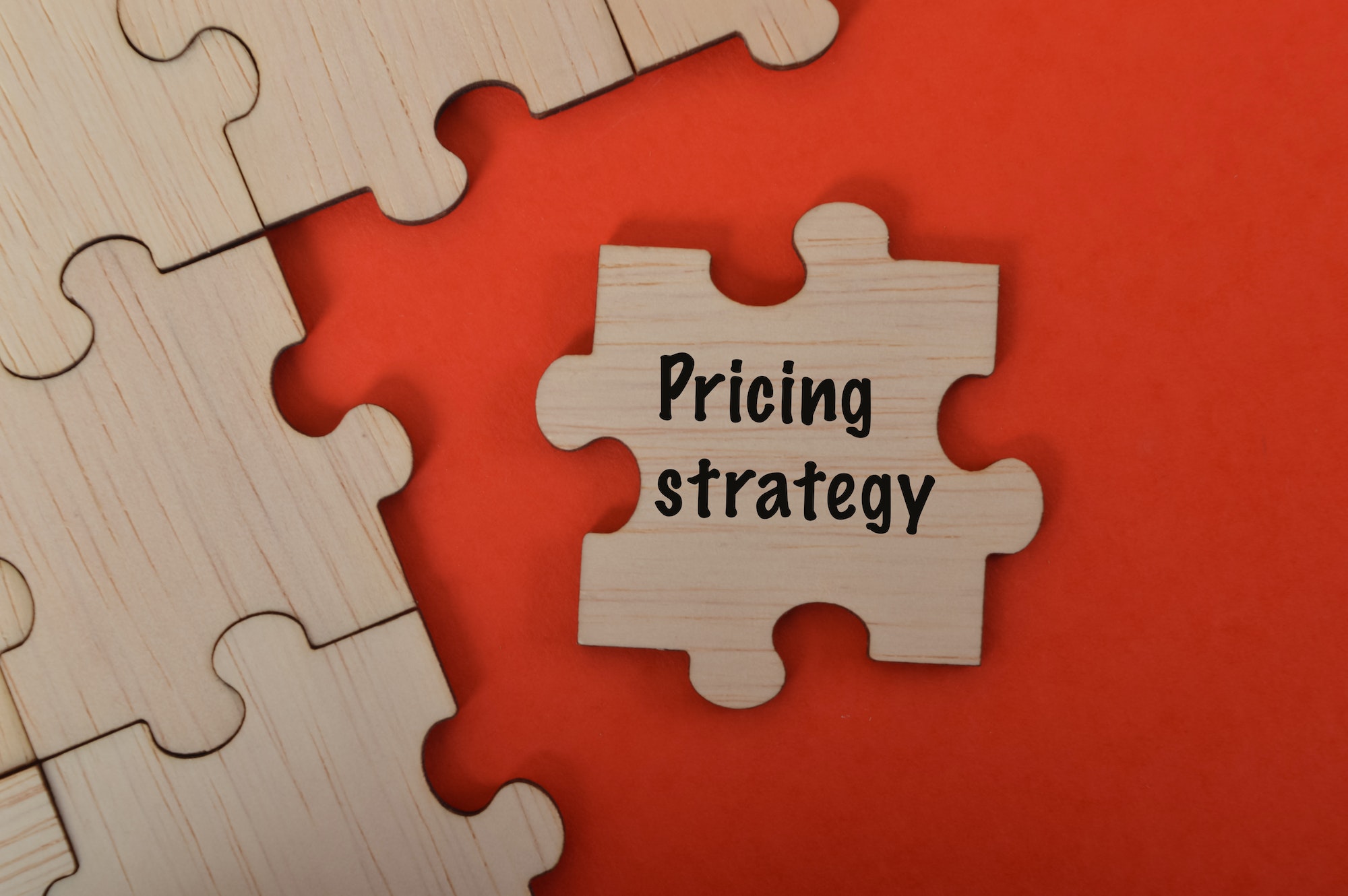Understanding SaaS Growth with Content Marketing
As a SaaS business owner, it’s crucial to understand the interplay between your product and the marketing strategies that drive its growth. In particular, content marketing plays a pivotal role in scaling your business. In this section, we’ll define SaaS (Software as a Service) and delve into the role of content marketing in SaaS growth.

Defining SaaS (Software as a Service)
Software as a Service, or SaaS, is a software delivery model where a service provider hosts applications for customers over the internet, typically on a subscription basis. This model eliminates the need for the end-user to install and run the software on their personal computers or in their data centers, significantly reducing software maintenance, ongoing operation, and support costs.
SaaS has become a common delivery model for many business applications, including office and messaging software, payroll processing software, DBMS software, management software, CAD software, development software, gamification, virtualization, accounting, collaboration, customer relationship management (CRM), management information systems (MIS), enterprise resource planning (ERP), invoicing, human resource management (HRM), talent acquisition, content management (CM), antivirus software, and service desk management.
The Role of Content Marketing in SaaS Growth
Content marketing is a strategic marketing approach focused on creating and distributing valuable, relevant, and consistent content to attract and retain a clearly defined audience — with the ultimate goal of driving profitable customer action. It’s a long-term strategy that uses content (in a variety of formats) to build a stronger relationship with your audience, capture their attention, improve engagement, and improve brand recall.
For SaaS businesses, content marketing is a powerful tool to educate potential customers about the benefits of the product, demonstrate how it solves a problem, and establish your company as an industry leader.
By sharing high-quality, relevant content, you can attract potential customers, nurture them through the sales funnel, and encourage them to become loyal, long-term customers. This approach is particularly effective in the SaaS industry, where the product is often complex, and customers require a significant amount of information before making a purchase decision.
Content marketing strategies in the SaaS realm can include blog articles, white papers, eBooks, infographics, video content, webinars, social media content, newsletters, case studies, and more. The key is to provide value to your audience, answer their questions, and help them understand why your product is the solution they’ve been searching for.
In the context of SaaS content marketing, a well-planned and executed content marketing strategy can contribute to increased brand awareness, higher organic search rankings, increased website traffic, lead generation, and customer acquisition. For more insights on how to develop a robust SaaS marketing strategy, check out our guide on saas marketing strategies.
The Power of Content Marketing
In the world of SaaS, understanding and leveraging the power of content marketing can be the key to unlocking your business’s growth potential. Here, we delve into how content marketing fuels SaaS growth and the essential elements that make up a successful content marketing strategy.
How Content Marketing Fuels SaaS Growth
Content marketing plays a pivotal role in SaaS growth. It serves as a vehicle for communicating your brand’s values, services, and unique selling proposition to your target audience. But how exactly does it fuel SaaS growth?
-
Lead Generation: By creating and sharing valuable content, you can attract potential customers, turning your website into a lead generation machine. Relevant and engaging content encourages visitors to provide their contact information in exchange for access to the content. Read our article on saas lead generation for more strategies.
-
Brand Awareness and Authority: Regularly publishing high-quality content helps establish your brand as an authority in your niche. This increased visibility and credibility can help differentiate your SaaS business from competitors.
-
Customer Retention: Content marketing isn’t just about attracting new customers; it’s also about keeping existing ones. Sharing useful tips, updates, and success stories can help retain customers and increase their lifetime value.
-
SEO: Search engines love fresh, relevant content. Regularly updating your blog or resource center can help improve your website’s search engine rankings, making it easier for potential customers to find you.
Essential Elements of Successful Content Marketing
While understanding the power of content marketing is crucial, knowing the essential elements that make a successful SaaS content marketing strategy is equally important.
-
Target Audience: Understanding your target audience is the first step in any successful content marketing strategy. Knowing what your audience needs, their pain points, and how your SaaS solution can help them, forms the foundation of your content creation.
-
Content Quality: The quality of your content is paramount. Your content should be engaging, informative, and valuable to your audience. It’s not just about selling your product, but providing real value that can help your audience solve their problems.
-
Consistency: Consistency in publishing new content is key. This doesn’t mean you need to publish new content daily, but rather, maintain a regular schedule that your audience can rely on.
-
Promotion: Creating great content is only half the battle. Promoting your content through various channels such as social media, email newsletters, and SEO can help ensure that it reaches the widest possible audience.
-
Measurement: Finally, it’s essential to measure your content marketing efforts. This involves tracking key metrics such as website traffic, leads generated, and customer retention rates. Check out our article on saas marketing metrics for a guide on what to measure.
Implementing a successful SaaS content marketing strategy can greatly contribute to your business growth. Remember that content marketing is not a one-size-fits-all approach. Customize your strategy based on your business goals, target audience, and resources for the best results.
How Does Content Marketing Contribute to the Success of SaaS Growth?
Content marketing plays a crucial role in the success of SaaS growth. By implementing powerful SaaS marketing strategies, such as creating informative blog posts, engaging videos, and valuable case studies, SaaS companies can attract, educate, and convert potential customers. This ultimately leads to increased brand visibility, trust, and customer acquisition.
Building a SaaS Content Marketing Strategy
Crafting a successful SaaS content marketing strategy requires meticulous planning and execution. This process involves identifying your target audience, choosing the right content types, and developing a well-structured content calendar.
Identifying Your Target Audience
The first step in your SaaS content marketing plan is to identify your target audience. Understanding who your customers are and what they need will allow you to create content that resonates with them, thereby increasing the chances of conversion. Consider factors such as their industry, job role, challenges, and goals.
Additionally, you should also consider where they are in the sales funnel. Are they just discovering your product, or are they considering a purchase? By segmenting your audience based on their position in the sales funnel, you can create tailored content to guide them through the buyer’s journey.
For more insights on how to identify and understand your target audience, refer to our comprehensive guide on SaaS marketing strategies.
Choosing the Right Content Types
Once you’ve identified your target audience, the next step is to decide on the types of content you’ll create. The choice of content type should align with your audience’s preferences and where they are in the buyer’s journey.
- Blog posts are great for providing valuable information and establishing your brand as a thought leader.
- Ebooks and whitepapers offer in-depth insights and are useful for generating leads.
- Webinars and video tutorials are excellent for demonstrating your product’s functionality and benefits.
- Case studies and customer testimonials can boost your credibility and convince potential customers of the value of your product.
For more guidance on choosing the right content types for your SaaS business, check out our article on SaaS product marketing.
Planning Your Content Calendar
A content calendar is an essential tool in your SaaS content marketing strategy. It helps you organize your content creation efforts and ensure that you’re consistently producing and publishing high-quality content.
Your content calendar should include:
- Content topics: What each piece of content will be about.
- Content types: The format of the content (blog post, video, etc.)
- Publishing dates: When each piece of content will be published.
- Content creators: Who is responsible for creating each piece of content.
- Promotion channels: Where and how each piece of content will be promoted.
For more tips on how to plan an effective content calendar, refer to our guide on SaaS digital marketing.
By identifying your target audience, choosing the right content types, and planning your content calendar, you can build a robust SaaS content marketing strategy that drives growth and success for your business. Remember, content marketing is a long-term strategy that requires consistency and continuous optimization. Keep track of your SaaS marketing metrics to understand what’s working and where improvements can be made.
Implementing Your SaaS Content Marketing Strategy
Once you have your SaaS content marketing strategy in place, it’s time to move into the implementation phase. This involves creating engaging, high-quality content, promoting your content, and measuring your content marketing success.
Creating Engaging, High-Quality Content
The cornerstone of any successful SaaS content marketing strategy is the creation of engaging, high-quality content. This type of content should be designed to address the needs of your target audience, offering them valuable insights, solutions, and information that positions your SaaS product as the best solution.
Your content should be well-researched and backed by data wherever possible. It should be written in a clear, concise manner that makes it easy for your audience to understand and engage with. Aim to create a mix of content types such as blog posts, eBooks, whitepapers, webinars, and more, based on what resonates best with your audience.
Remember, the goal of your content is not to hard sell your product, but rather to build trust, credibility, and thought leadership within your industry. If you’re looking for more tips on creating high-quality content, check out our article on saas product marketing.
Promoting Your Content
Creating great content is just the first step. To get the most out of your SaaS content marketing efforts, you also need to actively promote your content. This can be done through various channels such as email marketing, social media, paid advertising, guest blogging, and more.
An essential part of promoting your content is SEO (Search Engine Optimization). By optimizing your content with relevant keywords and meta tags, you can improve its visibility on search engines and attract more organic traffic to your website.
Another effective way to promote your content is through email marketing. By sharing your content with your email subscribers, you can drive high-quality traffic back to your website and increase engagement. For more tips on how to effectively promote your content, check out our article on saas email marketing.
Measuring Your Content Marketing Success
Finally, it’s important to regularly measure the success of your SaaS content marketing efforts. This involves tracking key metrics such as website traffic, page views, bounce rate, time spent on page, conversion rate, and more.
By regularly monitoring these metrics, you can gain valuable insights into how your content is performing, which types of content are most effective, and where there may be opportunities for improvement.
Here’s a sample table of potential metrics to track:
| Metric | Description |
|---|---|
| Website Traffic | The number of visitors to your website. |
| Page Views | The number of pages viewed by visitors. |
| Bounce Rate | The percentage of visitors who leave your site after viewing only one page. |
| Time Spent on Page | The average amount of time visitors spend on a specific page. |
| Conversion Rate | The percentage of visitors who complete a desired action (e.g., filling out a form, signing up for a trial, etc.). |
For a detailed guide on how to measure your content marketing success, check out our article on saas marketing metrics.
Implementing a SaaS content marketing strategy requires careful planning, execution, and measurement. By creating engaging, high-quality content, effectively promoting it, and regularly measuring your success, you can drive growth and success for your SaaS business.
Overcoming Common SaaS Content Marketing Challenges
When implementing a SaaS content marketing strategy, it’s natural to encounter challenges along the way. However, the key to success lies in knowing how to effectively tackle these obstacles. In this section, we’ll discuss how to overcome three common challenges: consistently creating fresh, relevant content, reaching your target audience, and aligning content marketing with sales goals.
Consistently Creating Fresh, Relevant Content
One of the main challenges you might face in SaaS content marketing is maintaining a steady stream of fresh, relevant content. It’s important to understand that content marketing is not a one-time effort, but an ongoing strategy that requires continuous planning, creation, and optimization.
To overcome this challenge, consider creating a content calendar that outlines what content you plan to create, when you plan to publish it, and the channels through which you’ll promote it. This can help you stay organized and ensure you’re consistently publishing new content. You can also repurpose existing content in new formats to extend its reach and lifespan.
For innovative ideas on content creation, explore our resource on saas marketing strategies.
Reaching Your Target Audience
Another challenge is ensuring your content reaches your target audience. No matter how high-quality your content is, it won’t drive results if it doesn’t reach the right people.
To overcome this challenge, you need to have a deep understanding of your target audience, including their needs, preferences, and online behaviors. Use this information to inform your content creation and promotion strategies. You can also use SEO techniques and social media marketing to increase your content’s visibility and reach.
For more tips on reaching your target audience, check out our guide on saas digital marketing.
Aligning Content Marketing with Sales Goals
Perhaps one of the most significant challenges in SaaS content marketing is aligning your content marketing efforts with your sales goals. Content marketing can be a powerful tool for driving sales, but only if it’s strategically aligned with your sales objectives.
To align your content marketing with your sales goals, you need to create content that guides prospects through the sales funnel, from awareness to consideration to decision. This involves creating different types of content for each stage of the sales funnel, promoting your content in places where your prospects are most likely to see it, and continually measuring and optimizing your content performance.
To better understand how content marketing can drive sales, read our article on saas lead generation.
By addressing these challenges head-on, you can make the most of your SaaS content marketing strategy and drive significant growth for your SaaS business. Remember, content marketing is a long-term strategy, and consistent effort and optimization are key to achieving lasting success.


